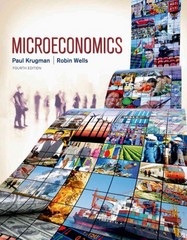Answered step by step
Verified Expert Solution
Question
1 Approved Answer
The business cycle refers to the ebb and flow of production and economic activity that consists of two phases (expansion and recession) and two turning
The business cycle refers to the ebb and flow of production and economic activity that consists of two phases (expansion and recession) and two turning points (peaks and troughs). Older workers might be influenced by the business cycle disproportionately because they are seen as more expensive (due to higher salaries and benefits) and easier to replace with younger workers. This can lead to a disproportionate impact on their unemployment rates during recessions. Conversely, during economic booms, businesses might be more willing to overlook the skill gap of older workers due to a shortage of qualified labor or poor labor force participation. This can lead to a faster decrease in their unemployment rate compared to younger workers who have less experience. In general, though, I think cyclical unemployment hits younger workers hardest. This is because they have less experience and seniority, making them more vulnerable to job losses. Additionally, younger workers are more likely to be employed in industries that are sensitive to economic changes, such as retail, hospitality, and construction
Step by Step Solution
There are 3 Steps involved in it
Step: 1

Get Instant Access to Expert-Tailored Solutions
See step-by-step solutions with expert insights and AI powered tools for academic success
Step: 2

Step: 3

Ace Your Homework with AI
Get the answers you need in no time with our AI-driven, step-by-step assistance
Get Started


